Did you know that the average solar installation cost in NJ has dropped by over 40% in the last decade, and most New Jersey homeowners see their systems pay for themselves in less than nine years? This rapid shift means going solar is more accessible—and potentially more profitable—than ever. In this comprehensive guide, we’ll break down the real numbers, unravel the secrets behind the average solar installation cost NJ residents see, and give you practical steps to confidently budget your solar project. Curious about what impacts the cost of solar panels in New Jersey and how you can maximize your investment? Read on to find out how to save thousands when making the switch to clean energy!
Surprising Facts: The True Average Solar Installation Cost NJ Homeowners Face
Understanding the actual average solar installation cost NJ homeowners encounter can be eye-opening for families considering the switch to renewable energy. While national averages put residential solar panel system installs around $2.80 per watt, New Jersey’s competitive market—and abundant incentives—often push prices even lower. Most installations for the average home range from $13,000 to $21,000 before incentives . That number varies based on system size, materials, and your unique energy demands, but many are surprised by just how attainable the investment has become in recent years.
These costs often include not only the solar panels but also inverters, mounting hardware, connections, labor, and permitting fees. When you factor in local rebates and the federal solar tax credit, the cost of solar in New Jersey becomes even more attractive—sometimes slashing initial outlays by 30% or more. This means that families with average monthly electric bills can often eliminate those expenses entirely, shifting what they were previously paying their utility to a smart home upgrade that increases property value and delivers decades of savings. The rapid payback timeline has helped New Jersey climb into the top rung of U.S. solar-friendly states.
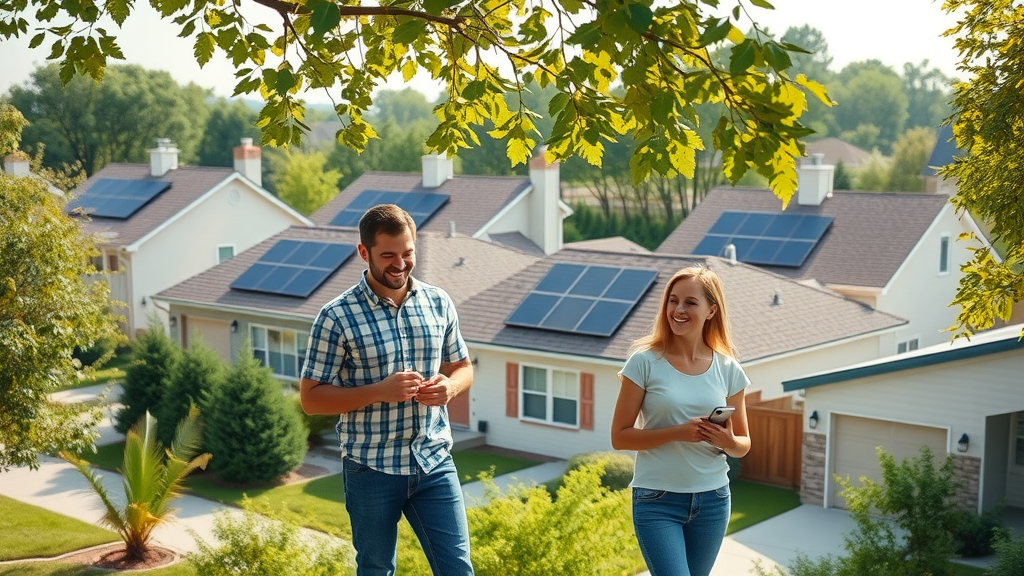
Did You Know? Most Solar Panel Systems in New Jersey Pay for Themselves in 7 to 9 Years
One of the biggest draws for solar panels in New Jersey is the remarkably short payback period—7 to 9 years, according to current state data and leading installers. This is due to a combination of high local electricity costs, strong sun exposure from spring through fall, and generous rebates that reduce your system cost upfront. With warranties on most systems spanning 25 years, this means the money you invest now will continue to deliver savings and clean energy rewards for many years to come. Even with modest annual energy price inflation, your solar panels could save you tens of thousands of dollars over their lifespan.
Unlocking the Average Solar Installation Cost NJ — Understanding Pricing Trends
When evaluating the average solar installation cost NJ homeowners face, context is everything. Solar pricing varies widely across the state, and understanding these trends empowers you to negotiate and plan more effectively. Over the last five years, as solar companies have grown and technology has improved, equipment and installation costs have fallen, making now a strategic time to act. Still, price fluctuations are driven by variables like equipment brands, local solar incentives, and your home’s unique site challenges.
By analyzing pricing trends, homeowners gain clarity on why installation cost quotations differ from one provider to the next and between different homes on the same street. Is your roof ideal for southern exposure, or will some shade limit your system’s return? Are labor rates higher in urban areas like Jersey City or lower in the suburbs? Gaining a grip on these pricing drivers helps you spot competitive bids—and weed out overpriced or underdesigned proposals—so you get the most value from your new solar installation.
Why the Cost of Solar Varies in New Jersey
Solar installation pricing isn’t one-size-fits-all. Key variables alter the bottom line for every project, even for similar-looking neighborhoods. First, the system size (measured in kW) directly impacts both equipment and labor costs: a larger home with higher electricity needs will require a bigger—and more costly—panel system. Premium solar panel brands offer greater efficiency and durability but command higher upfront prices, influencing the overall average cost of solar installations across the region. Additionally, the installation cost can vary among solar companies, especially with differences in service quality, warranty packages, and labor rates tied to experience and certifications.
Site-specific details like roof condition, angle, and shading further influence final costs. A south-facing, unobstructed roof encourages system efficiency and streamlines installation, while homes with complicated layouts or older shingles may need additional prep work or higher mounting fees. If your roof has heavy shading from mature trees or chimneys, installers may suggest fewer panels or advanced microinverter technology, both of which can affect the final cost of solar for your New Jersey home.
- Size of solar panel system
- Choice of solar panels and inverters
- Installation cost differences among solar companies
- Site-specific factors like roof orientation and shading
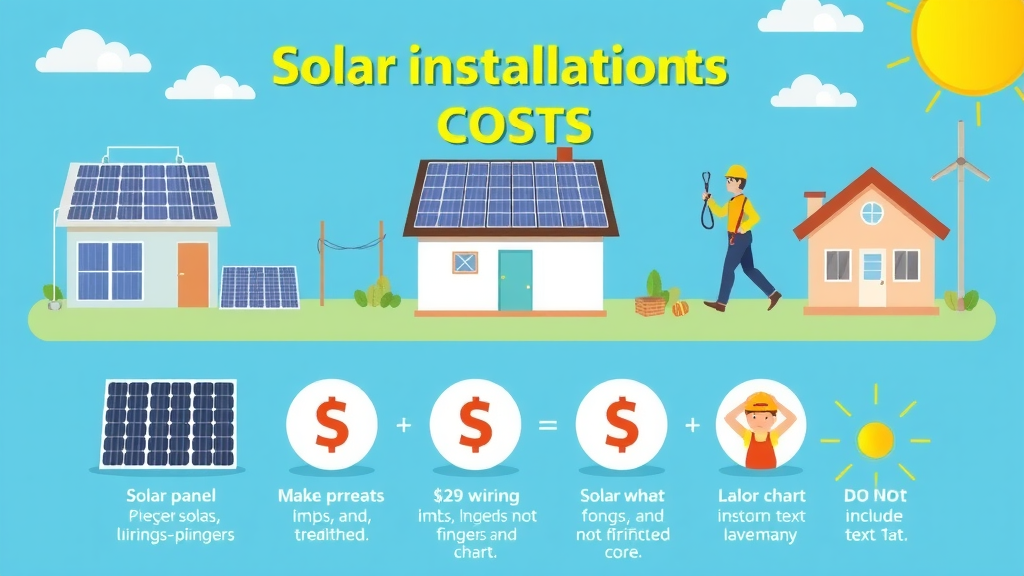
Breakdown: Typical Panels in New Jersey and Installation Expenses
For most New Jersey homes, the typical solar panel system ranges from 6 kW to 10 kW, depending on household size and electricity consumption. The cost breakdown often looks like this: About 55-60% of your total spend covers the panels and inverters, 25-30% goes to labor and installation, and the remainder to permit fees, inspections, and supporting equipment. Choosing higher-efficiency panels or inverters with a longer warranty increases equipment costs but can deliver meaningful gains in energy production and fewer maintenance concerns down the road.
With a 7 kW system—a common choice for a typical family home—the system cost before incentives could range from $16,000 to $22,000, depending on brand selection, installer reputation, and any special property needs. Bulk discounts are often available, and respected solar companies offer flexible packages to fit your goals and budget. Requesting detailed cost breakdowns from several providers ensures transparency, so you’re confident your proposal covers everything needed for a code-compliant, high-performance solar power system.
Average Cost of Solar Panels for NJ Homes
Let’s dig into real numbers: As of this year, the average cost of solar panels in New Jersey sits between $2.60 and $3.20 per watt before incentives, with high-efficiency brands at the top of that range. For a mid-sized home (using about 8,400 kWh/year), this translates to $18,000–$21,500 for a 7 kW system, prior to tax credits and rebates. After applying New Jersey’s suite of solar incentives, homeowners often see their net cost drop by 30% or more, making the investment especially attractive compared to rising grid energy prices.
For those interested in premium equipment, advanced monitoring, or battery backup, expect the final installation costs to rise. Still, the combination of state and federal tax credits, performance-based incentives, and net metering rights means that, on balance, the solar panel system in New Jersey is one of the most affordable and profitable in the country. Leveraging accurate sizing and the most favorable incentives is the key to reaching the shortest payback window.
Solar Panel Choices: Direct Impact on Average Solar Installation Cost NJ
The specific solar panels you choose can change your project’s final price substantially. Brand reputation, performance characteristics, and warranty support all factor into the average solar installation cost NJ families see on estimates. While some top-tier companies offer panels above 22% efficiency and 25-year guarantees, budget options may come with shorter lifespans and lower generation—impacting your energy savings as well as your ongoing return on investment.
Installation companies will often recommend a few trusted brands, but it pays to compare costs, efficiency ratings, and available warranties. Remember, in regions like New Jersey prone to occasional snow and strong seasonal changes, durability is just as vital as price per watt. If your roof’s space is limited, higher-efficiency panels can produce more power per square foot, sometimes at only a modest premium over commodity panels.
Comparing Solar Panel Brands and Their Cost of Solar
The most reputable solar panel brands—such as SunPower, REC, QCells, and Panasonic—are widely used in New Jersey for their blend of efficiency, high output, and strong warranties. While high-end brands command prices near the upper end of the average cost per watt, they can produce more electricity over the years, meaning less reliance on the utility grid and more pronounced savings over time. Lower-cost brands may offer attractive upfront savings and quicker payback but often come with shorter or less comprehensive warranty coverage.
Evaluating solar panel warranty terms is crucial: top manufacturers provide 25-year product and performance guarantees. This long view protects you from unplanned expenses and supports robust renewable energy production across all seasons. Installation companies usually provide performance projections and side-by-side brand comparisons—use these to ensure your selection matches your goals for system output, payback period, and total lifetime value.
| Brand | Average Cost (per watt) | Efficiency (%) | Warranty (Years) |
|---|---|---|---|
| SunPower | $3.05–$3.30 | 22.7 | 25 |
| REC | $2.85–$3.10 | 21.9 | 25 |
| QCells | $2.60–$2.90 | 20.1 | 25 |
| Panasonic | $2.85–$3.05 | 21.2 | 25 |
| Amerisolar | $2.50–$2.75 | 19.5 | 12 |
Panel System Size: How Much Do You Really Need in NJ?
Your ideal system size depends on your family’s average monthly electricity demand and your goals for utility bill reduction. New Jersey homes typically require systems from 6 kW to 10 kW, with exact sizing based on historical energy bills and anticipated changes—think electric vehicles or new home additions. Oversizing can mean quick payback but higher upfront costs, while undersizing risks missing out on maximum savings and valuable SREC credits (Solar Renewable Energy Certificates).
It’s vital to work with an installer who conducts a thorough assessment: analyzing your energy use, house orientation, and available roof space. This ensures you invest in the optimal number of solar panels for your needs without excessive overproduction or wasted expense. The right panel system balances cost with year-round output to deliver both solid payback and future flexibility—especially important as new clean energy incentives and electrification trends reshape local utility rates.

“Investing in the right size solar panel system can mean the difference between years of savings and wasted potential. Size matters, especially in New Jersey’s changing energy landscape.”
Average Solar Installation Cost NJ by Home Size and Usage
One of the most reliable methods of determining your solar investment is to start with home size and electricity use. The square footage of your property directly informs how many panels you need and your system’s total wattage capacity. For instance, a compact 1,500 sq ft home may thrive with a 5-6 kW setup, while a sprawling 3,500 sq ft residence might require 10 kW or more to offset high energy bills.
New Jersey’s broad range of housing stocks and lifestyles means system recommendations are always personalized—but the following cost table gives a realistic preview of what to expect for different household profiles. Larger families, homes with swimming pools or EV chargers, and properties with southern-facing roofs can expect faster payback through robust net metering and state incentive payouts, making solar in New Jersey a smart bet for long-term investors.
Panels in New Jersey for Different House Sizes
| Home Size (sq ft) | Estimated System Size (kW) | Panel Count | Estimated Pre-Incentive Cost |
|---|---|---|---|
| 1,500 | 5-6 | 15-18 | $13,000–$16,000 |
| 2,000 | 7-8 | 21-24 | $16,000–$21,000 |
| 2,500 | 8-10 | 24-30 | $18,000–$24,000 |
| 3,000 | 10-12 | 30-36 | $23,000–$27,000 |
| 3,500 | 11-13 | 33-39 | $25,000–$32,000 |
Calculating the Average Cost of Solar for Your Energy Use
Determining your actual solar expenses goes beyond just square footage. Average electricity bill is critical: homes that consume more energy year-round (with central A/C, pool pumps, or electric vehicles) will need more powerful solar arrays. Since every kW system generates about 1,200–1,400 kWh annually in New Jersey, your energy bills become the foundation for exact panel count and system sizing. Top installers use your last 12 months of usage data to custom-design your solar panel system .
Don’t forget, physical elements like roof condition and layout can add costs. Old or complex roofs might require structural upgrades before the solar installation. At every step, available solar incentives —including the federal solar tax credit and SREC payments—should be subtracted from estimates to see the true, anticipated out-of-pocket cost for your family. A detailed, site-specific bid from a respected local installer is the gold standard for confident budgeting.

- Average electricity bill
- System size requirements
- Roof condition and layout
- Available incentives
Solar Incentives and the Federal Solar Tax Credit — Lowering Your Average Installation Cost in NJ
One of the biggest game-changers for the average solar installation cost NJ residents see is the availability of robust solar incentives and powerful tax credits. The federal solar tax credit (also known as the ITC) currently covers 30% of your total solar project cost, and New Jersey adds generous performance-based incentives and sales tax exemptions. These incentives together can turn a daunting price tag into a surprisingly affordable investment—sometimes even zeroing out upfront spending through smart financing or a power purchase agreement.
Families pursuing clean energy solutions should always ask their installer about current local, state, and utility rebates. Not every program is advertised widely, and new pilot programs can emerge each year. Top solar companies in NJ stay up-to-date to help you stack qualifying incentives and supercharge your payback timeline. Understanding your eligibility and options is essential for maximizing the value of your solar panel system.
Understanding the Federal Tax Credit and State Solar Incentive Programs
The federal solar tax credit (ITC) is the most powerful incentive for solar in the U.S., including New Jersey. This credit directly reduces your income taxes by 30% of your total installation cost—including panels, inverters, racking, labor, and permitting fees. At the state level, New Jersey offers additional perks like SREC-II payments (Solar Renewable Energy Certificates), property tax exemptions on the value added by your system, and a full waiver of New Jersey sales tax for solar equipment.
These combined incentives not only reduce initial installation costs but also help shorten the payback period dramatically. By leveraging the ITC plus local NJ incentives, most homeowners see their true net cost of going solar drop by thousands of dollars. A knowledgeable installer will walk you through every program you’re eligible for, calculate expected paybacks, and help with the necessary paperwork, ensuring you get every available dollar toward your solar project.

Solar Tax Credit: What’s Available for Panels in New Jersey
New Jersey property owners installing solar panels can claim the federal solar tax credit (ITC) for 30% of the total project cost, plus state-backed incentives like property tax exemptions, local program rebates, and SREC II payments for every megawatt-hour produced. Sales tax exemption shaves 6.625% off panel hardware prices, while the state’s net metering policies guarantee you’re paid retail rates for any surplus energy sent to the grid. Taken together, these programs mean New Jersey is one of the most cost-effective states for solar panel installations in 2024.
Net Metering: Maximizing Savings with Your Solar Panel System
Net metering remains one of New Jersey’s most lucrative solar incentives. Through net metering, solar in New Jersey homeowners are credited for surplus power sent back to the grid at full retail rates—meaning every extra kilowatt-hour your panels produce translates directly into bill savings or even credits for low-sunlight months. Combined with modern, app-based monitoring systems, net metering empowers you to track production, spot trends, and optimize usage for maximum financial return each month.
“The federal solar tax credit can cover 30% of your solar system’s upfront cost, making solar more affordable for thousands of NJ homeowners.”
Choosing Solar Companies in NJ: Impact on Average Solar Installation Cost and Service
Not all solar companies are created equal, and your choice of installer is as pivotal as your choice of equipment. While the average solar installation cost NJ homes pay might seem similar on paper, service, workmanship, and warranty terms can differ drastically. The best solar companies in New Jersey will provide transparent estimates, back their work with long-term warranties, share honest customer reviews, and design a system perfectly tailored to your energy needs. It pays off to shop around and compare at least three detailed proposals before signing.
Pay special attention to local vs. national firms. Some families prefer local expertise and presence for service calls, while others seek the resources of a large, multi-state installer. In either case, verify licensing, check third-party ratings, and request example installations in your area before deciding. Choosing a high-quality installer means your system will deliver its expected value with fewer headaches and peace of mind for years to come.
Comparing Solar Companies and Installation Cost Quotations
Requesting several bids will highlight differences not only in installation cost but in what’s included. Beware of lowball quotes that omit roofing upgrades, warranty coverage, or project management. Ask for full, written breakdowns of all labor, equipment, and potential change orders. Look for clarity in timeline, payment schedule, and post-installation support—these are the hallmarks of the best solar installers in New Jersey.
- Company experience
- Warranty terms
- Customer reviews
- Transparency in estimates

Long-Term Value: How Average Solar Installation Cost NJ Offsets With Lifetime Savings
Investing in solar panels isn’t just about getting a lower utility bill; it’s a step toward energy independence , lowered carbon emissions, and significant long-term savings. While the average solar installation cost NJ homeowners pay might seem high, remember: solar panels provide reliable, no-fuel-cost electricity for decades, sharply reducing or eliminating your monthly energy spend year after year. The lifetime value far outweighs the initial investment for most families, especially when you factor in ongoing incentive payments and rising grid costs over time.
Modern solar panel systems are engineered for durability and high efficiency in New Jersey’s seasonal climate. In addition to financial savings, they add property value, create a hedge against utility rate hikes, and demonstrate your commitment to a more sustainable future. Over a 25-year system lifespan, typical savings—especially with robust state incentives—can exceed $35,000, making solar energy in the Garden State one of the best home improvements you can make.
Estimating Payback Period and Energy Bill Reduction
A system’s payback period measures how quickly your investment is returned via utility bill savings. With today’s average solar installation cost NJ, plus state incentives and robust net metering, many families see total payback within 7 to 9 years. Post-payback, your system delivers almost-free power (excluding minor maintenance or inverter replacement between years 12–18). Estimating your annual bill reductions requires knowledge of historical energy usage and realistic production estimates from your installer, who should always use local climate and sun exposure data for accuracy.
Renewable Energy Benefits: Environmental and Financial
Solar panels in New Jersey pay double dividends: slashing emissions as well as household expenses. Each typical 7 kW system reduces carbon output the equivalent of planting nearly 150 trees per year, and contributes to a resilient, distributed power grid in your community. Financially, solar power can serve as both a cost-saving measure and a value-boosting home upgrade. New Jersey appraisers now routinely add $10,000 or more to home values for quality solar installations, recognizing their lifetime of clean, nearly maintenance-free energy production.
| Timeframe (Years) | Total Savings (Avg. 7-8kW System, Post-Incentive) | Net ROI (%) |
|---|---|---|
| 10 | $13,500 | 60 |
| 20 | $28,000 | 125 |
| 25 | $36,500 | 180 |

Real Numbers: FAQs Around Average Solar Installation Cost NJ
How much is a solar system for a 2000 sq ft house?
For a typical 2,000 square foot New Jersey home with moderate energy usage, the average cost of a solar system falls between $16,000 and $21,000 before incentives. After applying the federal solar tax credit and local rebates, out-of-pocket costs often land around $12,000–$15,000 for a high-quality install. These systems generally range from 7 kW to 8 kW in output and will offset the majority—if not all—of your annual utility bill.
Average cost expectations for a 2000 sq ft New Jersey home and primary cost variables
Primary variables include the choice of solar panel brand, inverter type, installer experience, roof complexity, and eligibility for local incentives. Homes with higher electricity consumption or non-ideal roof orientation may need slightly larger systems, nudging costs toward the upper end. Always request personalized quotes from at least three reputable solar companies in New Jersey to secure competitive pricing and a system precisely matched to your needs.
What is the 20% rule for solar panels?
The “20% rule” is a common guideline suggesting that for maximum value and efficiency, about 20% of your roof area should be covered with solar panels. For many average-sized New Jersey homes, this balances panel count, spacing, and maximized solar exposure to ensure your system delivers strong year-round performance without overcommitting your roof space. Your installer will use roof measurements and sun-mapping tools to apply this rule during the design process.
Explanation of the 20% roof coverage guideline for maximizing solar potential
By limiting installation to roughly 20% of your total roof area, you create space for future system expansion or accommodate vents, chimneys, and shading obstructions. This approach often hits the “sweet spot” of costs versus returns, safeguarding both your investment and your roof’s long-term health. Some homes with high power demands or ideal roof orientation might choose to exceed 20% to maximize savings, but your installer will tailor recommendations based on your unique property and energy use objectives.
Is it worth getting solar in New Jersey?
Absolutely. Thanks to high retail electricity rates, abundant sun, and robust state incentives, New Jersey ranks among the top states for solar ROI. Most homeowners can expect system payback in less than 9 years, ongoing bill savings, and long-lasting increases in property value. The availability of the federal tax credit and SREC II payouts further boosts your financial returns, making solar in New Jersey an investment that’s not just smart, but environmentally impactful too.
Comparison of cost, incentives, and payback timelines for NJ homeowners
The average homeowner in New Jersey will pay between $12,000 and $17,000 for a solar panel system, net of incentives. Payback typically lands in the 7–9 year range, with over $25,000 in projected 25-year savings. Add in property value boosts and climate benefits, and solar stands out as one of the most reliable, future-proof home upgrades available in the Garden State.
How much does it cost to install solar in NJ?
Upfront installation costs for solar in NJ currently run $13,000 to $21,000 for average residential systems before incentives—contingent on factors like system size, equipment brand, site characteristics, and installer. After federal and state solar credits, expect to pay $9,000 to $15,000 for most installations. Always demand detailed, line-item estimates so you can compare apples to apples and ensure maximum value for your investment.
Range of upfront installation costs and best practices for budgeting solar projects
Always budget for potential ancillary expenses—like electrical upgrades or roof repairs—when planning your project. Top tips: solicit several bids, review what’s included (hardware, permitting, utility connection), and ensure incentives are clearly factored into final numbers. Above all, select a trusted, transparent installer to avoid surprises and optimize your payback.
Top Questions from NJ Residents on Average Solar Installation Cost
- How much will I save annually with solar?
- Are there hidden costs associated with solar installation?
- What ongoing maintenance is required for solar panels?
Expert Insights: Budgeting Strategies for the Average Solar Installation Cost NJ
True long-term solar savings start with a solid plan—one that weighs upfront expenses against future upgrades, evolving incentives, and unexpected costs. Early planning for panel system improvements, battery storage, or smart inverters may result in lower lifetime costs by avoiding later retrofits and maximizing performance payments like SRECs. Savvy homeowners also time their projects to align with the best available rebates and tax credit deadlines for maximum value.
Planning for Solar Panel System Improvements and Upgrades
Think ahead: If you anticipate buying an electric car, adding a home addition, or switching to heat pumps, share these plans with your installer. They might recommend “future-proofing” your design by oversizing inverters, adding conduit, or choosing a panel brand compatible with advanced monitoring or battery backup. These smart choices help keep upgrade costs minimal and ensure your solar power system stays agile and efficient for years ahead.
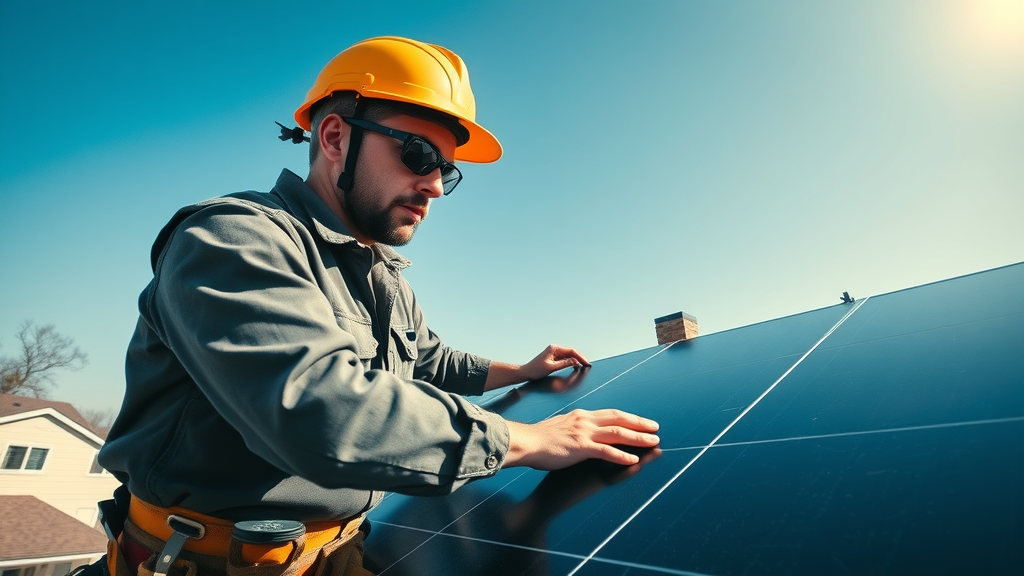
Negotiating with Solar Companies for Better Installation Cost
Negotiation can save thousands: Particularly in New Jersey’s busy solar market, companies are open to price adjustments to win your project—especially when you show competing bids. Also, some installers may offer free add-ons like system monitoring, extended warranties, or upgraded inverter models as sweeteners. Always clarify what’s included, ask for price matching, and don’t be afraid to walk away if you spot red flags or vague terms. The more thoroughly you review your contracts and ask for clarifications, the smoother and more stress-free your project will be from start to finish.
Utilizing Incentives and Financing Options to Reduce Out-of-Pocket Average Solar Installation Cost
Tap every incentive and explore your financing choices! NJ solar shoppers can minimize upfront costs through solar loans, leases, or power purchase agreements, each with pros and cons. Ask your installer about programs they partner with, and how payments and interest compare over time. Combining a smart financing approach with available tax credits and performance incentives nearly always results in the lowest effective cost for solar panels in New Jersey.
“Smart budgeting and strategic timing can make solar panel installation not just affordable, but a valuable long-term investment for New Jersey families.”
Key Takeaways: Navigating Average Solar Installation Cost NJ
- Evaluate multiple quotes
- Factor in incentives
- Choose reputable installers
- Calculate payback period
Need Help Now? Connect With Reliable Solar Panel Experts in NJ
Find NJ’s Trusted Home Experts — Fast and Reliable Service at Your Fingertipswww.njhomesexperts.com
Ready to harness the savings and benefits of solar? Connect now with the most trusted solar pros in New Jersey—evaluating your needs and delivering fast, free quotes so you can make the switch with confidence.
Conclusion: Take action now by requesting multiple estimates, applying for all eligible incentives, and working only with top-rated solar professionals in New Jersey—your smart, future-proof investment starts today!
Understanding the average solar installation cost in New Jersey is crucial for homeowners considering the switch to renewable energy. As of mid-2025, the average installed price is about $2.62 per watt, meaning a typical 5 kilowatt (kW) system costs around $13,100 before incentives. ( powerlutions.com ) After applying the 30% federal tax credit, this cost drops to approximately $9,170.
Several factors influence the total cost of a solar installation:
-
System Size : Larger systems have higher upfront costs but can lead to greater long-term savings.
-
Equipment Quality : High-efficiency panels and premium inverters may increase initial expenses but often offer better performance and durability.
-
Roof Characteristics : Complex roof designs or shading can add to installation costs due to additional labor or equipment needs.
New Jersey offers several incentives to reduce these costs:
-
Federal Investment Tax Credit (ITC) : This credit allows homeowners to deduct 30% of the installation cost from their federal taxes.
-
Successor Solar Incentive (SuSI) Program : Homeowners earn about $85 per megawatt-hour of solar electricity produced, paid out over 15 years. ( solarmeusa.com )
-
Net Metering : Excess energy produced can be sent back to the grid, earning credits on utility bills.
By leveraging these incentives and understanding the factors affecting installation costs, New Jersey homeowners can make informed decisions and potentially achieve a payback period of approximately 6 years, leading to significant long-term savings. ( energysage.com )

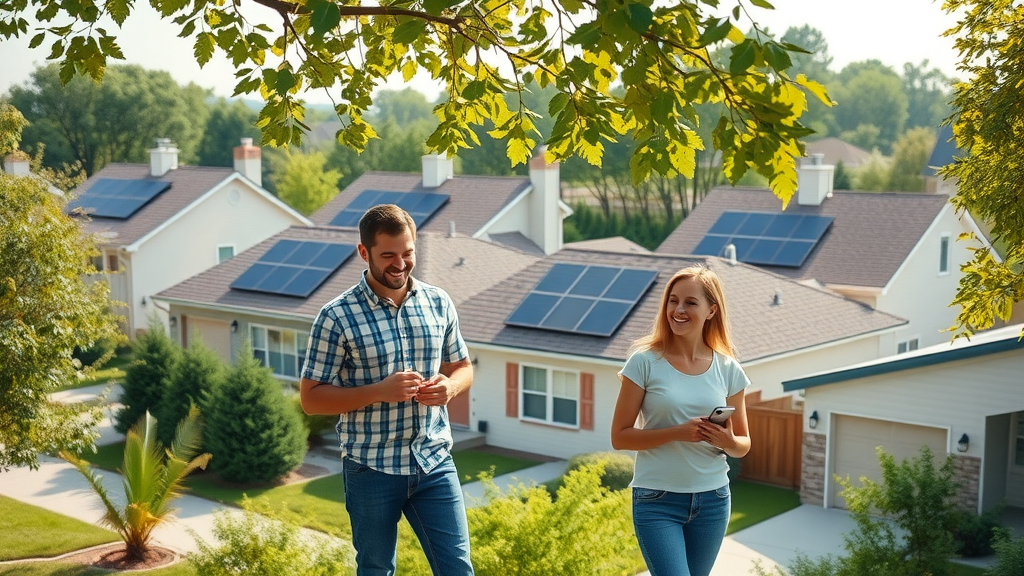

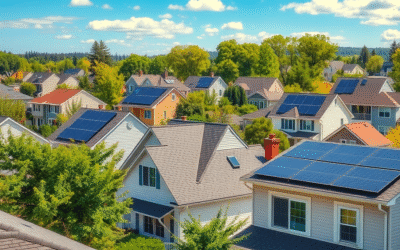



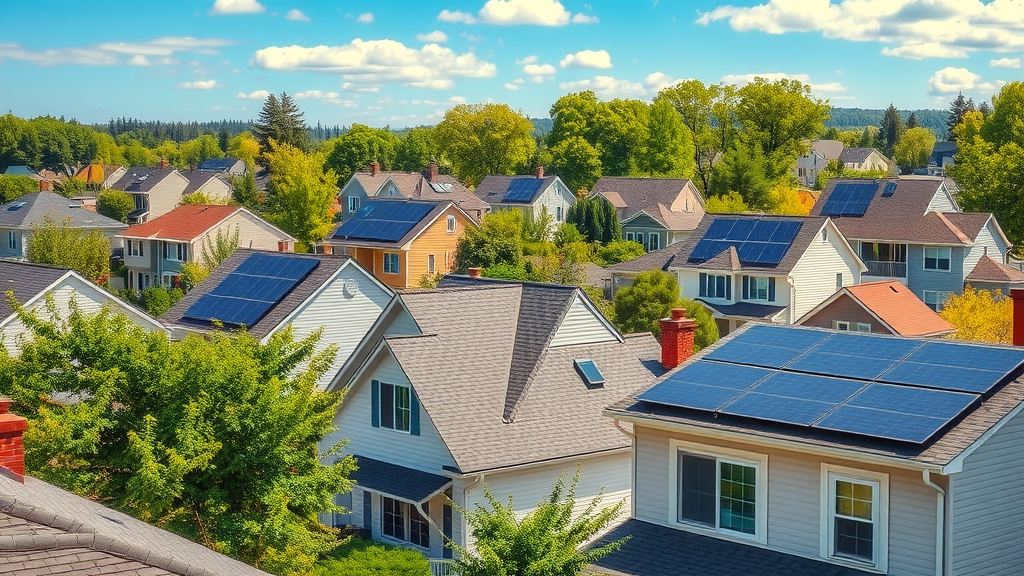
0 Comments